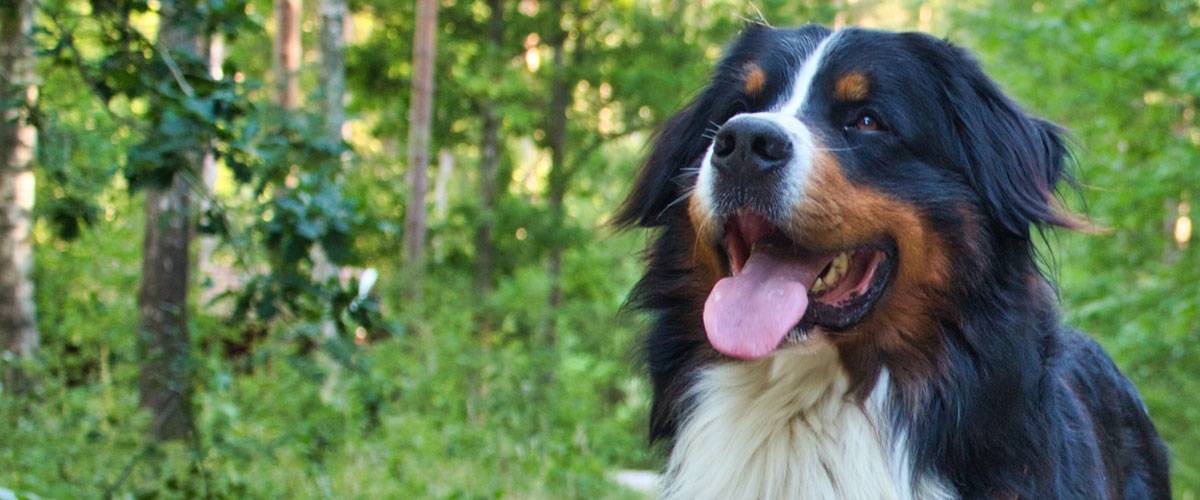
Updated May 25, 2023 – Histiocytic sarcoma (HS) is an uncommon but aggressive cancer in dogs. Histiocytes are a type of white blood cell that reside within the tissues of almost every organ in the body and are an important part of the immune system. They help get rid of invading pathogens and stimulate other cells of the immune system.
Histiocytic sarcomas develop when these specialized white blood cells begin dividing uncontrollably. Because white blood cells are found in many different tissues, HS can arise almost anywhere and spread quickly.
Risk Factors and Dog Demographics
Histiocytic sarcoma was first described in Bernese mountain dogs in the late 1970s, but it has now been noted in many other breeds, including:
- Flat-coated retrievers
- Miniature schnauzers
- Rottweilers
- Labrador retrievers
- Pembroke Welsh corgis
- Golden retrievers
Histiocytic sarcoma is more common in middle-aged and older dogs, although there are reports of the disease in dogs as young as 3 years old. Males and females are affected equally.
Given the strong breed predilection for this cancer, experts are studying the genetics behind the disease and homing in on potential genetic markers. In addition to genetics, the only other risk factors identified to date are a history of orthopedic disease and joint inflammation, and the subsequent development of localized HS in the previously affected joint.
Clinical Signs, Diagnosis and Treatment
Unfortunately, the most common signs of HS are similar to many other diseases and include:
- Lethargy
- Poor appetite
- Swelling and lameness (in cases of bone or joint involvement)
- Coughing
- Breathing difficulty
- Vomiting
- Diarrhea
Diagnosis usually is made based on a combination of clinical signs, bloodwork results, and biopsy or a fine needle aspirate of abnormal tissue. Additional tests, such as ultrasound or X-ray, often are used as adjunctive diagnostic tests and as a means of assessing the extent of disease.
Histiocytic sarcoma can take many forms, and clinical signs and prognosis vary with different subtypes. The three recognized subtypes are:
- Localized - disease is confined to one organ and usually is treated with surgery followed by chemotherapy. In many cases, patients can live more than one year (and occasionally longer), depending on the success of the surgery.
- Disseminated - disease affects many different organs. Chemotherapy can be used to slow progression of disease, but prognosis is poor with most patients only living a few months.
- Hemophagocytic - the most aggressive subtype, characterized by destruction of blood cells by the cancerous histiocytes. No effective treatments exist and survival times are only one to two months.
How the Foundation is Helping
In the last 13 years, the Foundation has invested nearly $350,000 in studies focused on histiocytic sarcoma.
Study topics we are focusing on include:
- Searching for new therapeutic targets
- Testing a new drug, trametinib, in dogs diagnosed with HS (building on the results of a Foundation-funded pilot study with promising results)
And we can't forget the Golden Retriever Lifetime Study! Our team is carefully tracking all cancers reported in our Study participants, including histiocytic sarcoma. Rich data from the Study is now available to the research community and will help provide unique insights into this disease.
How You Can Help
We still have a long way to go to stop histiocytic sarcoma. Learn what you can do to give hope to dogs and their people affected by this aggressive, and poorly understood, cancer.
Follow us to learn more about how our funded animal health research is helping beloved dogs everywhere.
Resources
Episode 44: Update on the Golden Retriever Lifetime Study




